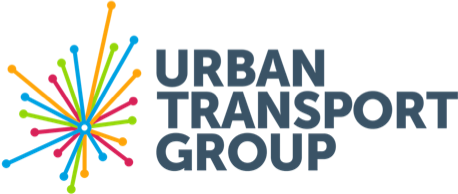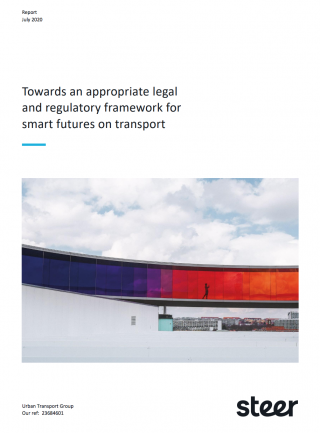Consultation response
Policy
Our latest reports, briefings and consultation responses are listed below. Use the search or filter functions to discover specific policy documents.
You can also see our full list of policy topics via the link below.
Consultation response
Reforming Public Transport after the Pandemic
Briefing
Funding and delivering bus services during the pandemic and beyond
This document proposes a two stage approach to ensuring the most efficient use of public funding to provide the best possible bus service during the pandemic, whilst setting in place the foundations for reversing the decline in bus use that was taking place before the pandemic.
Consultation response
Pavement parking: options for change
Consultation response
Planning for the future
Consultation response
Submission to the Comprehensive Spending Review 2020
Report
The Covid-19 Funding Gap: The Case for Continuing Support for Urban Public Transport
This report, produced by transport consultancy Steer for the Urban Transport Group, warns that the future of local public transport services is at serious risk without continued COVID-19 financial support from Government.
Report
Towards an appropriate legal and regulatory framework for smart futures on transport
Commissioned from consultants Steer, this report seeks to provide an analysis of the strengths and weaknesses the current UK legal and regulatory framework for smart transport futures in relation to the key challenges that UK transport authorities face.
Briefing
The key COVID-19 challenges for urban transport and the support we need from Government
This overarching briefing sets out the key issues facing urban transport authorities in their response to the coronavirus crisis. It also sets out the four things we need from Government so that transport authorities can support a safe and achievable phased release from lockdown. Updated 18 August 2020.
Consultation response
Transport Decarbonisation Plan
Report
Action stations: How devolution is transforming rail stations for the better
This report focuses on the benefits of the involvement of devolved authorities in rail stations.
Briefing
Supporting bus services in the COVID-19 recovery period
This briefing makes the case for a more robust and cost effective format for funding support for the bus sector for the recovery period.
Briefing
The transport challenges of the return to schools
The COVID-19 crisis has led to the capacity of public transport to be heavily constrained, creating formidable operational and financial challenges for transport authorities which will have a key role to play in supporting a return to schools in September. This briefing sets out the key challenges for transport authorities and our asks of central Government.
Consultation response
Future of Transport Regulatory Review
Briefing
The urgent need for sustainable bus funding arrangements for bus services in the Covid-19 recovery period
This briefing sets out the case for a more robust and cost effective format for bus funding for the recovery period. Updated 16th June 2020
Consultation response
e-scooters: pavement nuisance or transport innovation?
Consultation response
Legalising rental e-scooter trials
Briefing
Open letter to Baroness Vere on funding during Coronavirus pandemic
An open letter to Baroness Vere on funding for urban transport in the city regions during the Coronavirus Pandemic
Report
Automatic for the people? Issues and options for transport authorities on connected and autonomous vehicles
Consultation response
Budget representations 2020
Consultation response
Automated Vehicles: Passenger services and public transport
Report
The Local Transport Lottery - The costs and inefficiencies of funding local transport through ad hoc competitions
This report takes an in-depth look at the implications of an excessive reliance on competition funding for urban transport projects.
The research shows how such a reliance impacts local authorities’ ability to deliver value for money and places pressure on authorities and their staff.
Briefing
Climate emergency declarations - briefing note
This document provides a summary of which authorities have declared a climate emergency and what targets they are committing to. It does not cover all authorities but focuses primarily in those in the city regions, with some additional key urban areas included for interest. This document represents a snapshot in December 2019, as authorities are continuing to declare climate emergencies and set targets.
Report
How bus users spend their journey time
This research - conducted by transport consultancy SYSTRA on behalf of the Urban Transport Group - uncovers valuable insights into how passengers spend their time while travelling by
Report
Making the connections on climate: How city regions can join the dots between transport, energy and the built environment
Report
What scope for boosting bus use? An analysis of the Intrinsic Bus Potential of local authority areas in England
This research, by Transport for Quality of Life, identifies the underlying conditions that best predict levels of bus use in local areas. It points to six conditions which, when combined, are used to define the ‘Intrinsic Bus Potential’ (IBP) of a local authority area.
Report
What next for urban transport?
This report - published to coincide with the 2019 Autumn Party Conferences - identifies four urban transport challenges and four solutions needed to overcome them.
It also details what transport authorities need from Government to bring about these changes.
Report
MaaS movement? Issues and options on Mobility as a Service for city region transport authorities
Briefing
Air quality
Working to improve air quality is a key challenge and priority across our members. Here are our five operational asks of Government which would help us to achieve this aim.
Briefing
Multi-Operator Ticket Comparison 2019
This document provides comparative analysis of bus operator fares and multi-operator ticket fareas across Urban Transport Group member areas and a range of comparators. This information was collected in June 2019 and was correct at the time of research. Bus fares change regularly and it is likely that some of the fares are out of date, however, this is intended as a snap shot analysis and should be treated as such.


